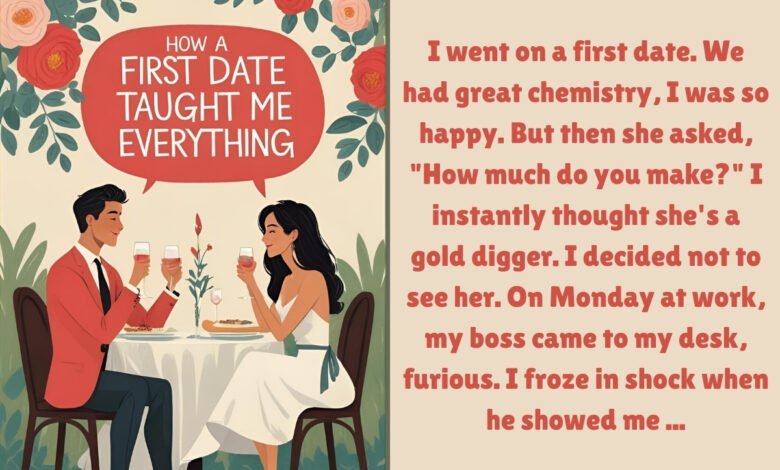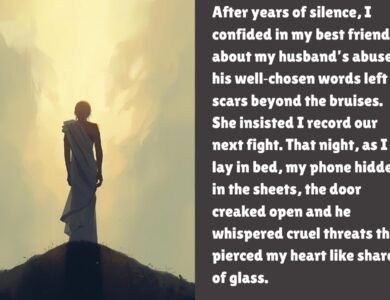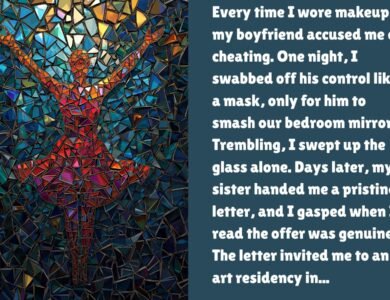
I went on a first date. We had great chemistry, I was so happy. But then she asked, “How much do you make?” I instantly thought she’s a gold digger. I decided not to see her. On Monday at work, my boss came to my desk, furious. I froze in shock when he showed me a printed-out screenshot of a negative online review of our company… written by her.
The review had the company name, my full name, and said, “This place hires people who judge you based on one question and ghost you without explanation. Don’t trust them with your business.” My heart sank. It was her. She didn’t even mention the date explicitly, but it was clear who she was talking about. I immediately felt embarrassed, not just because my name was there, but because… she was kind of right.
I tried to explain to my boss what happened, but he wasn’t interested in my dating life. He just said, “Fix this. Now.” and walked off. My job was in marketing, and my boss was terrified of any kind of public scandal, even one as minor as a single negative comment.
I sat at my desk in silence for a good five minutes. I thought back to our date. Her name was Alina. We met at a little wine bar downtown. She was funny, confident, and made me laugh in a way few people do. We talked about everything—movies, food, travel, even family. It felt easy, natural.
Then she asked me how much I made.
That one question triggered something in me. I had just gotten out of a relationship where I constantly felt like I was being sized up for my paycheck. I told myself I wouldn’t go through that again. So when she asked, I smiled, changed the subject, and never texted her again.
Now I was paying the price. I thought I had dodged a gold digger, but maybe I had just misread the situation.
I looked her up again on Instagram. Her last post was a picture of a book and a coffee cup, captioned: “Some people read you like a price tag. Others want to know your story. Be careful who you let narrate your worth.”
It hit me.
I sent her a message.
“Hey Alina, I owe you an apology. I jumped to conclusions that night and didn’t give you the respect of a real conversation. I don’t expect anything from you, but I just want to say I’m sorry.”
She didn’t reply for two days.
In the meantime, I tried to find a way to get that review taken down, but the platform wouldn’t remove it unless the original poster deleted it or the company took legal action. My boss kept checking in. “Any updates?” he’d ask, impatient.
Then, finally, I got a reply.
“Thanks for your message. I didn’t post that review to get you in trouble. I posted it because I was tired of feeling like asking a basic question made me the bad guy.”
I asked her if we could meet for coffee. Not a date. Just to talk.
To my surprise, she agreed.
We met at a small café near her office. She wore a simple white blouse and jeans, no makeup, hair pulled back. She looked tired but calm.
“I really did like you,” she said after we ordered. “But that moment… it felt like a wall went up.”
“I know,” I admitted. “And I realize now that I assumed the worst.”
She nodded slowly. “Can I ask you something honestly?”
“Of course.”
“Why did the money question bother you so much?”
I paused. I wasn’t proud of the answer.
“My ex… she used to make me feel like I was only as valuable as my income. Every gift had strings. Every argument somehow circled back to money. When you asked, I guess I panicked.”
Alina looked down at her coffee.
“I wasn’t trying to measure your worth,” she said quietly. “I just wanted to know if we were on the same page, life-wise. Money’s not everything, but it’s part of compatibility too.”
I had nothing to say to that, because she was right. I had judged her for being upfront about something that people usually dance around.
She continued, “I work in financial education. I’ve seen what happens when couples never talk about money. It destroys relationships.”
I suddenly felt like the idiot in the room.
“I didn’t know that,” I said.
“You didn’t ask,” she replied, not unkindly.
There was a moment of silence between us. It wasn’t tense. It was reflective.
“I took down the review, by the way,” she said.
“Thank you,” I said, genuinely grateful.
“I didn’t do it for your boss,” she added. “I did it because I realized I don’t want to be that person either. One bad experience doesn’t mean someone’s a bad person.”
I felt like she’d just handed me the lesson I didn’t even know I needed.
We didn’t end up getting back together. But we did keep talking. And after a few weeks, we actually became friends. Real ones. We’d meet for lunch occasionally, send each other book recommendations, and even joke about our awkward date.
One afternoon, while walking back from a lunch break, Alina said something that stuck with me.
“You know, sometimes people ask direct questions not because they’re shallow—but because they’ve been through enough to know they don’t want to waste time.”
That one sentence changed how I approached every conversation after that.
Months went by. Work got busier. The drama faded. I started dating again—more open-minded, more present. One day, at a friend’s birthday dinner, I met someone named Irina. She worked in nonprofit fundraising, had the driest sense of humor I’d ever seen, and asked me during our first real conversation, “How do you usually budget your income?”
Old me would’ve flinched.
New me answered honestly.
We talked for two hours.
And we kept talking. Weeks turned into months. Irina and I had very different backgrounds, but we shared values. We talked about everything—money, family, trust. No walls, no assumptions.
Eventually, I told her about the date with Alina, the bad review, the lesson learned.
Irina laughed and said, “She sounds like someone I’d like.”
So I introduced them.
They’re actually friends now.
Funny how life works.
The biggest twist, though, came when my boss called me into his office one day with a grin.
“Remember that negative review? The girl who wrote it?”
I nodded, unsure where he was going.
“She applied for our financial education program partner role. Strong resume. I brought her in for an interview. Guess what?”
“What?”
“She’s consulting with us now. She’s already caught three reporting issues in our budgeting process.”
I smiled.
He leaned back. “You never know who’s gonna teach you something, huh?”
That was the day it hit me—people aren’t always what they seem in a single moment. A question isn’t always an attack. A judgment call can cost you not just a good connection, but a deeper understanding of yourself.
Looking back, I’m grateful for that awkward first date. Grateful for the moment that forced me to look inward. Grateful that she didn’t just let me ghost her quietly.
Because of Alina, I stopped leading with assumptions and started leading with curiosity.
I learned that asking about money doesn’t mean someone’s greedy. It means they care enough to talk about real things early.
I also learned that messing up doesn’t make you a bad person—if you’re willing to learn and own it.
Most of all, I learned that sometimes, a twist in the road leads you to exactly where you need to be.
If you’ve ever misjudged someone too quickly, or had someone misjudge you, maybe this story feels familiar.
Don’t be afraid to talk honestly.
Don’t be afraid to ask real questions.
And don’t be afraid to admit when you got it wrong.
You never know what can come out of that.
If this story meant something to you, share it with someone who might need the reminder too. And give it a like—because sometimes, a small gesture makes a big difference.
Read More: The Sofa She Left Behind







